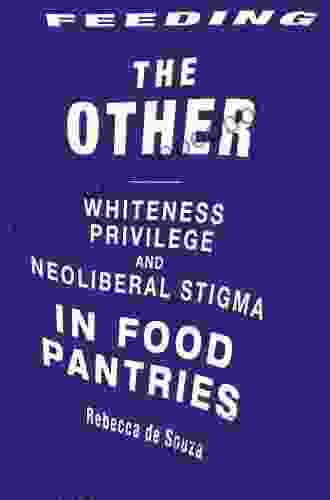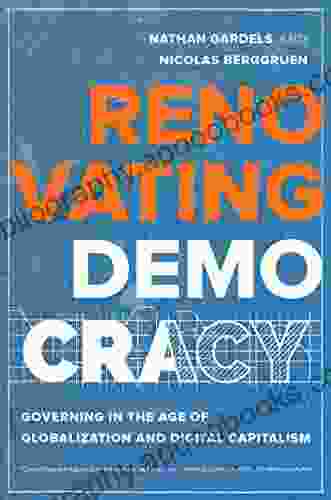Whiteness Privilege and Neoliberal Stigma in Food Pantries: Food Health and the Marginalization of Communities of Color

In the United States, food pantries play a critical role in addressing food insecurity, providing essential sustenance to millions of people facing economic hardship. However, these institutions are not immune to the insidious forces of systemic racism and classism that permeate society. This article explores the intersections of whiteness privilege and neoliberal stigma within food pantries, revealing the hidden barriers and marginalization faced by communities of color in accessing nutritious food.
Whiteness privilege is a form of unearned advantage bestowed upon individuals based on their perceived race. It manifests in various ways, including access to better education, healthcare, housing, and employment opportunities. In the context of food pantries, whiteness privilege can lead to preferential treatment and more dignified experiences for white patrons.
White patrons may be more likely to receive a wider variety of food options, including fresh produce, whole grains, and lean proteins. They may also encounter staff who are more welcoming and respectful. Conversely, patrons of color may face condescension, judgment, and limited food choices.
5 out of 5
| Language | : | English |
| File size | : | 689 KB |
| Text-to-Speech | : | Enabled |
| Screen Reader | : | Supported |
| Enhanced typesetting | : | Enabled |
| Word Wise | : | Enabled |
| Print length | : | 341 pages |
Neoliberalism, a prevalent economic and political ideology, emphasizes individual responsibility and self-reliance. It promotes the belief that poverty is a result of personal failures rather than systemic factors. This ideology has led to increased stigmatization of those who rely on government assistance, including food pantries.
Communities of color, who are disproportionately affected by poverty, bear the brunt of this neoliberal stigma. They may be viewed as "lazy" or "unworthy" of assistance, reinforcing feelings of shame and humiliation. This stigma can deter them from accessing food pantries and other vital services, perpetuating food insecurity and health disparities.
To illustrate the impact of whiteness privilege and neoliberal stigma in food pantries, this article presents two case studies:
Case Study 1: A study conducted in a Midwestern food pantry found that white patrons received significantly more fresh produce and lean protein than patrons of color. White patrons were also treated more respectfully by staff.
Case Study 2: A survey of food pantry patrons in a major U.S. city revealed that patrons of color were more likely to report experiencing judgment and condescension from staff. They were also more likely to feel ashamed and humiliated while visiting the pantry.
These case studies provide a glimpse into the lived experiences of communities of color in food pantries. They highlight the systemic barriers and marginalization that perpetuate food insecurity and health disparities.
Addressing the intersections of whiteness privilege and neoliberal stigma in food pantries requires a multifaceted approach that includes:
Challenging Whiteness Privilege: Food pantries must actively challenge whiteness privilege by providing equal access to nutritious food and respectful treatment for all patrons. Staff training and awareness campaigns can help reduce implicit biases.
Combating Neoliberal Stigma: Food pantries can play a role in combating neoliberal stigma by promoting a message of support and dignity. They can emphasize the systemic factors that contribute to food insecurity and advocate for policies that address root causes.
Empowering Communities of Color: Food pantries can empower communities of color by involving them in decision-making and leadership roles. This ensures that their voices and needs are heard and addressed.
Collaborating with Social Services: Food pantries should collaborate with other social service organizations to provide comprehensive support to patrons. This may include job training, housing assistance, and mental health services.
Whiteness privilege and neoliberal stigma create significant barriers to food access and health for communities of color in food pantries. By understanding the complex intersections of these issues, food pantries can take concrete steps to challenge systemic racism and promote food justice. Through collaboration, advocacy, and empowerment, we can create a more equitable food system that nourishes all members of our society.
5 out of 5
| Language | : | English |
| File size | : | 689 KB |
| Text-to-Speech | : | Enabled |
| Screen Reader | : | Supported |
| Enhanced typesetting | : | Enabled |
| Word Wise | : | Enabled |
| Print length | : | 341 pages |
Do you want to contribute by writing guest posts on this blog?
Please contact us and send us a resume of previous articles that you have written.
 Book
Book Novel
Novel Page
Page Chapter
Chapter Text
Text Story
Story Genre
Genre Reader
Reader Library
Library Paperback
Paperback E-book
E-book Magazine
Magazine Newspaper
Newspaper Paragraph
Paragraph Sentence
Sentence Bookmark
Bookmark Shelf
Shelf Glossary
Glossary Bibliography
Bibliography Foreword
Foreword Preface
Preface Synopsis
Synopsis Annotation
Annotation Footnote
Footnote Manuscript
Manuscript Scroll
Scroll Codex
Codex Tome
Tome Bestseller
Bestseller Classics
Classics Library card
Library card Narrative
Narrative Biography
Biography Autobiography
Autobiography Memoir
Memoir Reference
Reference Encyclopedia
Encyclopedia Kenneth Rosenberg
Kenneth Rosenberg Laura M Brotherson
Laura M Brotherson Beverly A Devries
Beverly A Devries David Wild
David Wild Shannon Myers
Shannon Myers Peggy A Ertmer
Peggy A Ertmer Kenny Salwey
Kenny Salwey Jason Troyer Phd
Jason Troyer Phd Dr Hulk
Dr Hulk Deanna Lynn Sletten
Deanna Lynn Sletten Debbie Danielsen
Debbie Danielsen M B Henry
M B Henry Michael Hodgson
Michael Hodgson Kyle Campbell Miller
Kyle Campbell Miller Shiv Singh
Shiv Singh Deborah Grace White
Deborah Grace White Diana Neebe
Diana Neebe Deborah R Gilbert
Deborah R Gilbert Nikki Moustaki
Nikki Moustaki Greg Jeffries
Greg Jeffries
Light bulbAdvertise smarter! Our strategic ad space ensures maximum exposure. Reserve your spot today!

 Herman MitchellDiscover the Enchanting World of Eva Marie Wood Wolf: A Literary Journey...
Herman MitchellDiscover the Enchanting World of Eva Marie Wood Wolf: A Literary Journey... Isaiah PowellFollow ·9.4k
Isaiah PowellFollow ·9.4k Eli BrooksFollow ·8.9k
Eli BrooksFollow ·8.9k Bill GrantFollow ·3.5k
Bill GrantFollow ·3.5k Walt WhitmanFollow ·18.9k
Walt WhitmanFollow ·18.9k Harrison BlairFollow ·18.2k
Harrison BlairFollow ·18.2k Roy BellFollow ·9.9k
Roy BellFollow ·9.9k Blake KennedyFollow ·16.7k
Blake KennedyFollow ·16.7k Stan WardFollow ·19.9k
Stan WardFollow ·19.9k

 Finn Cox
Finn CoxEmpowering School-Based Professionals: A Comprehensive...
: The Role of School-Based Professionals in...

 F. Scott Fitzgerald
F. Scott FitzgeraldThe Santa Fe Trail Twentieth Century Excursion: A...
Get ready to embark on an...

 Kendall Ward
Kendall WardThe Ultimate Trivia Guide to Bruce Springsteen and the...
Bruce Springsteen...

 Jedidiah Hayes
Jedidiah HayesThe Trouble with Lacy Brown: Texas Matchmakers - A...
Prepare to be swept...
5 out of 5
| Language | : | English |
| File size | : | 689 KB |
| Text-to-Speech | : | Enabled |
| Screen Reader | : | Supported |
| Enhanced typesetting | : | Enabled |
| Word Wise | : | Enabled |
| Print length | : | 341 pages |














